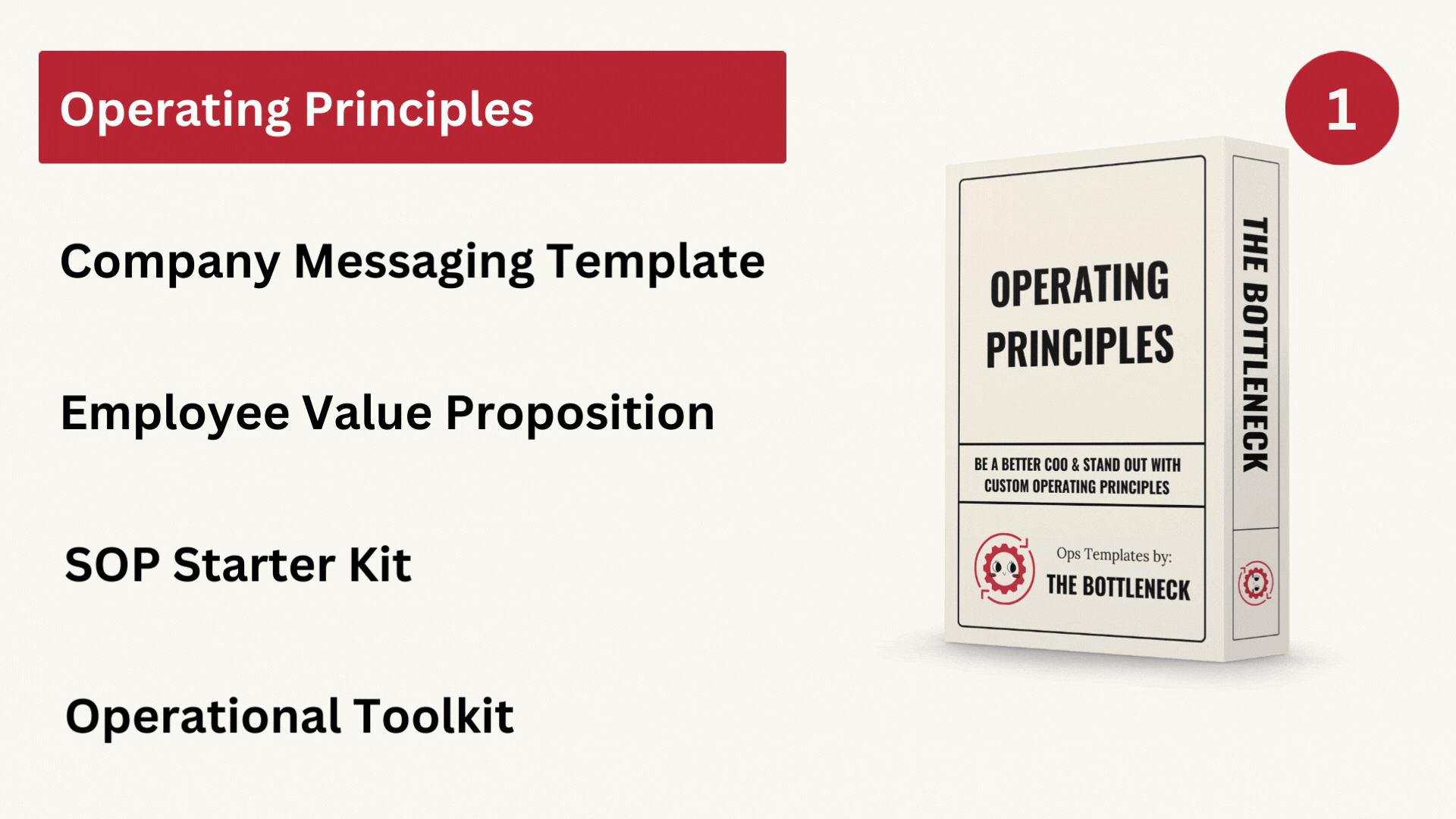
Read Time: 7.5 Minutes
Hi Operators ⚙️
Summer’s almost here. Warmer nights, lake days, more golf - what’s not to love?
I don’t know about you, but I’m trying to turn my business into a well-oiled machine for a smooth Summer. My team, and the culture we’re building, is the most important part of that.
So, today, I’m sharing the most useful tips I’ve found on hiring, people management, and culture.
⚙️ Here’s what we got going on today:
Weed out mediocrity, fast → Written answers make the difference
Your team should tell you that you’re wrong → Better leadership, better ideas
Netflix’s exercise for radical honesty → A tip for getting feedback out in the open
Let’s dive in.
(P.S Anything you want us to cover in a future edition? Reply to this email or hit me up at [email protected]. )

Together With Relay
VIRTUAL SUMMIT: State of Small Business in America

Streamed live from the Relay Studio, on Wednesday, June 12 at 12 p.m. ET, we’re bringing together business leaders from Shopify, Dext, Relay, and more to dive deep into how to build a strong and resilient financial foundation for your business.

5 Operator’s Library Links
If there are culture problems at your startup, don’t write a blog post. Fix them.
Ever heard of the “Gemba walk?” To solve a problem, talk to the people actually doing the work.
Here's how to structure, conduct and evaluate a behavioral interview.
The first 10 people to hire when scaling a B2B business. Where to find them, and how to convince them to join you.
The top (but rare) skill to look for when hiring (according to Stripe’s former COO).

I. Weed out mediocrity, fast.
Insight from Avlok Kohli
Life’s too short to settle for mediocre talent.
It’s also expensive. It costs up to 30% of an employee's first-year earnings to re-hire.
Unfortunately, most interview processes do a bad job of optimizing for the best candidates.
BS artists can, through sheer force of charisma, nail an oral interview while not saying much of substance.
That’s why CEO of AngelList, Avlok Kohli, prefers candidates to provide written answers to questions like:
How do you practice becoming better at what you do?
What’s an unpopular opinion you hold?
What’s something that wouldn’t exist in the world without you?
Written answers to open-ended questions reveal how structured a candidate’s thinking is.
Great candidates will organize their thoughts and express them with clarity.
They’ll also give a shit about the quality of their responses. As a bonus, you’ll get some insight into how they handle asynchronous tasks.
It’s an effective way to get a baseline read on competence, and you can forever ditch questions like, “What is your greatest weakness?”
(Spoiler alert: it’s that they care too much).

Learn more: Why – and How – to Hire an Outlier

II. Your team should tell you that you’re wrong.
Insight from Jade Rubick
Your team is lying to you, but it’s not their fault.
It’s natural for your reports to agree with your ideas. Speaking up, especially to your manager, is uncomfortable.
But it also means you’re missing out. Your team should be making your ideas better.
They have to be able to push back and argue against you.
It’s your job to create the environment where this can happen.
Here’s how to do it with one simple reframe:
Next time you present a plan or idea in a team meeting, don’t ask, “So that’s the idea. Anyone have something different?”
Set time aside for a discussion around: “What is the best argument against doing it this way?”
Specifically ask your team to play the contrarian, and make time to do so. This allows your team to present ideas and arguments without fear of being misread.
You’ll spot holes in your plans, you earn trust, and your team gets a chance to practice speaking up.
Everybody wins.

III. Netflix’s exercise for radical honesty
Insight from Patty McCord
A workplace can become too “nice.”
People are afraid of telling it like it is, and as a result:
Quality of work drops
Results suck
Resentment builds
Before you know it, you’ve got a toxic culture, results drop even further, and you start losing key members of your team.
All in the name of “niceness.”
How do great leaders prevent this?
They build a culture around radical honesty, a concept based on telling the truth without sugar-coating it.
It’s a broad concept that we’ll cover more in future playbooks, but if you want to start implementing it right away, here’s an exercise that the executive team at Netflix developed.
Netflix is known as a company with exceedingly high standards for performance.
Their famous Culture Doc, viewed over 5 million times to date, outlines the company’s values of judgement, innovation, and honesty.
How do they implement these values? One way is a peer-to-peer exercise called Start, Stop, Continue.

During stand-up meetings, each person tells a colleague one thing they want them to start doing, one thing to stop doing and one thing they’re doing really well.
They do it in real time, in front of each other. The goal is to give team-members practice in delivering feedback, especially difficult feedback, face-to-face.
A regular, structured exercise like this gets everything out into the open and prevents resentment from building over time.
Less in-fighting. More excellent work.
Learn more: Radical Honesty at Work

Something Fun

Last Word 👋
How am I doing?
I take all feedback I receive to heart. Keep it coming!
Am I covering the topics that are important to you? What else do you want me to include?
Just hit reply and let me know – I'd love to hear from you!
Cheers,
Rameel from The Bottleneck
Spread The Word
Share The Bottleneck with friends to get a few freebies. Maybe you’ll make some new ones on the way 😆
We’ll give you free stuff and more friends if you share a link. Only one link.

{{rp_personalized_text}}

